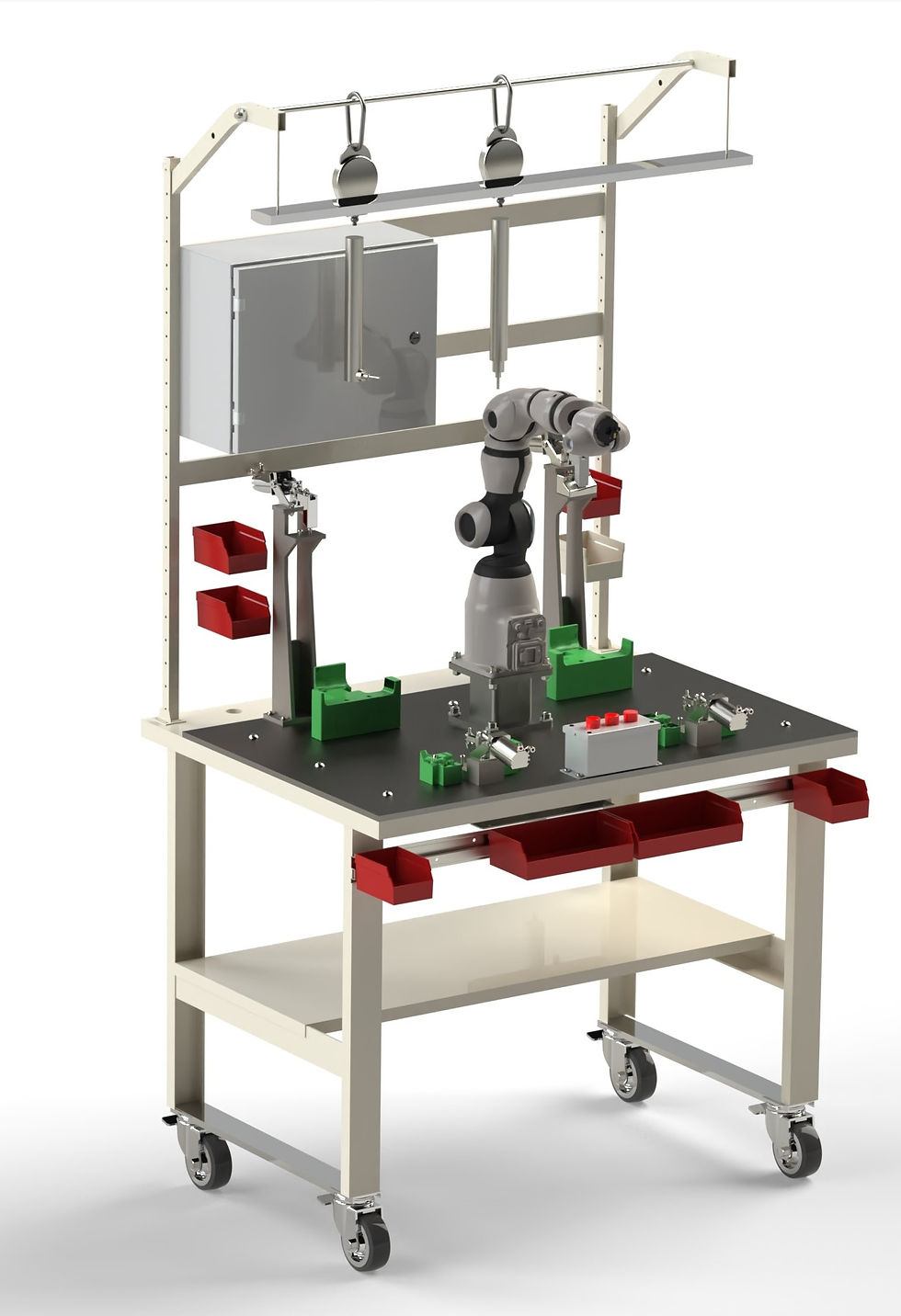Custom Bent Metal Hooks in Modern Manufacturing Processes, Designed with ASME B30.20 Compliance in Mind
- Jun 16, 2024
- 2 min read
Within the intricate world of modern manufacturing, efficiency reigns supreme. Every component, from raw materials to finished products, plays a role in the well-oiled machine of production. Often overlooked, however, are the seemingly mundane tools that underpin this efficiency: custom bent metal hooks. KTM has experience engineering and manufacturing the perfect custom hook for applications where off-the-shelf solutions will not work.
Beyond Standardization: The Advantages of a custom design
While standardized hooks have their place, custom bent metal hooks offer a multitude of advantages for manufacturers. These hooks are meticulously crafted to address specific needs, incorporating bends, curves, and configurations tailored for the task at hand.

Applications Driving Innovation: Where Custom Hooks Excel
Optimized Part Handling: Custom hooks can be designed to lift and cradle specific parts during assembly or transportation with precision. This not only minimizes the risk of damage but also enhances organization and streamlines workflows.
Secure Handling of Loads: Custom hooks can be constructed from carbon steel or stainless and designed to safely support heavy objects such as machinery components or other materials.
Why Custom Designs Surpass Off-the-shelf Solutions
While readily available pre-made hooks exist, custom designs offer distinct advantages:
Precise Functionality: A custom hook is meticulously crafted to address a specific task, ensuring a perfect fit and optimal functionality within the designated application.
Prioritizing Safety: Custom hooks can be designed with safety features in mind, including rounded edges and weight capacity limitations, minimizing the risk of accidents and injuries.

ASME B30.20: A Commitment to Safety and Compliance
For manufacturers who prioritize safety and regulatory compliance, the American Society of Mechanical Engineers (ASME) B30.20 standard for Below-the-Hook Lifting Devices serves as a crucial guideline. Custom hook designers should be familiar with the B30.20 standard to ensure their creations adhere to its safety protocols. This includes factors like:
Material Selection: The ASME B30.20 standard outlines specific material strength requirements for hooks depending on their intended load capacity and service class.
Design Specifications: The standard specifies design parameters such as minimum hook throat openings, shank dimensions, and mandatory markings to indicate weight capacity.
Testing Procedures: The ASME B30.20 standard may require certain custom hook designs to undergo specific load testing to verify their integrity and adherence to weight capacity limitations.
By working with KTM Engineering your organization can attain ASME B30.20 compliance., and ensure the custom bent metal hooks are not only functionally superior but also meet the industry's safety benchmarks.





Comments